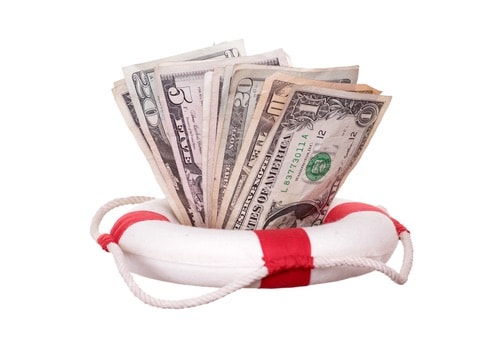
The Next 5 Things You Should Do in a Financial Emergency
Living from one paycheck to the next can certainly make it more difficult when it comes to saving money. Because of this many people are finding it next to impossible to save enough to start or grow an emergency fund. But what happens when a financial emergency occurs, and you do not have the cash needed to make it through? What should you do next?
Stay Positive
If you are experiencing a financial emergency, the last thing you want to do is to panic. Many people, like you, find themselves unprepared and scrambling to find the resources needed to address an unexpected event, but reacting in a negative way can set the tone going forward and make things worse. Your first reaction should be thought-out and informed rather than made in haste. Remaining calm, cool, and collected is important, maybe even essential in overcoming the emergency you are dealing with, so take the time to assess the situation so that you can come up with a sensible and financially-sound solution.

Look at Your Options
Before making a move, take a moment to consider your options. Do you have anything in your savings? Do you have access to withdraw money from investment funds, such as a 401(k), IRA, or other? Can you apply for a line of credit or a low-interest loan? If you find that none of these options apply to you or your situation, that’s ok. All is not lost. You have other alternative lending methods that are available. While a traditional loan may be out of the question due to your credit score or lack of collateral, using a non-traditional funding solution may be just what you need to get ahead of this financial crisis. For instance, Georgia Auto Pawn, Inc. can offer you auto pawn cash with a Georgia title pawn. All you need to qualify are just a few simple requirements.
Ask for Help
If all else fails, and you would rather ask for a personal loan from a family or friend, then swallow your pride and ask for help. This may not be ideal for most, but when facing an emergency, it might be your best option. Borrowing from friends and family can put a strain on your relationships, so treat this help with respect and be sure to pay back what you owe as soon as possible.

Cut Your Spending
If you have not had the opportunity or the discipline to start an emergency savings fund, odds are that you will not have the extra money needed to address your financial emergency. When dealing with a financial emergency, cutting your spending should go without saying, but sometimes we don’t realize how a small adjustment can make a huge difference. The point is, getting through the financial emergency and back to a place of financial health and wholeness may require some temporary changes. Short-term cutbacks in your spending will allow you the opportunity to recover from this emergency without a devastating impact on your finances. Determining your needs from your wants should help you figure out where you can make adjustments in your spending.
While cutting expenses will help and it is definitely a start, you may need to also seek outside help. Depending on the magnitude of the emergency, receiving outside help from a family member, friend, traditional loan, or non-traditional loan, maybe the only way that you can recover from this challenging situation. If that is the case, then you may want to figure it out as soon as possible.
Get Your Finances in Order
The first thing you will notice during a financial emergency, aside from money being tight, is that other financial burdens start presenting themselves. If you are hoping to bounce back without any casualty, you need to be aware of where you are financially and put first things first. It is important to recognize what your needs are and what your wants are, and start to prioritize based on these different categories. You must put your needs first and then focus on your wants. Knowing this can help you to figure out where you are being wasteful. Once you identify that unnecessary spending, you can eliminate it to free up some emergency funds.
Note: The content provided in this article is only for informational purposes, and you should contact your financial advisor about your specific financial situation.